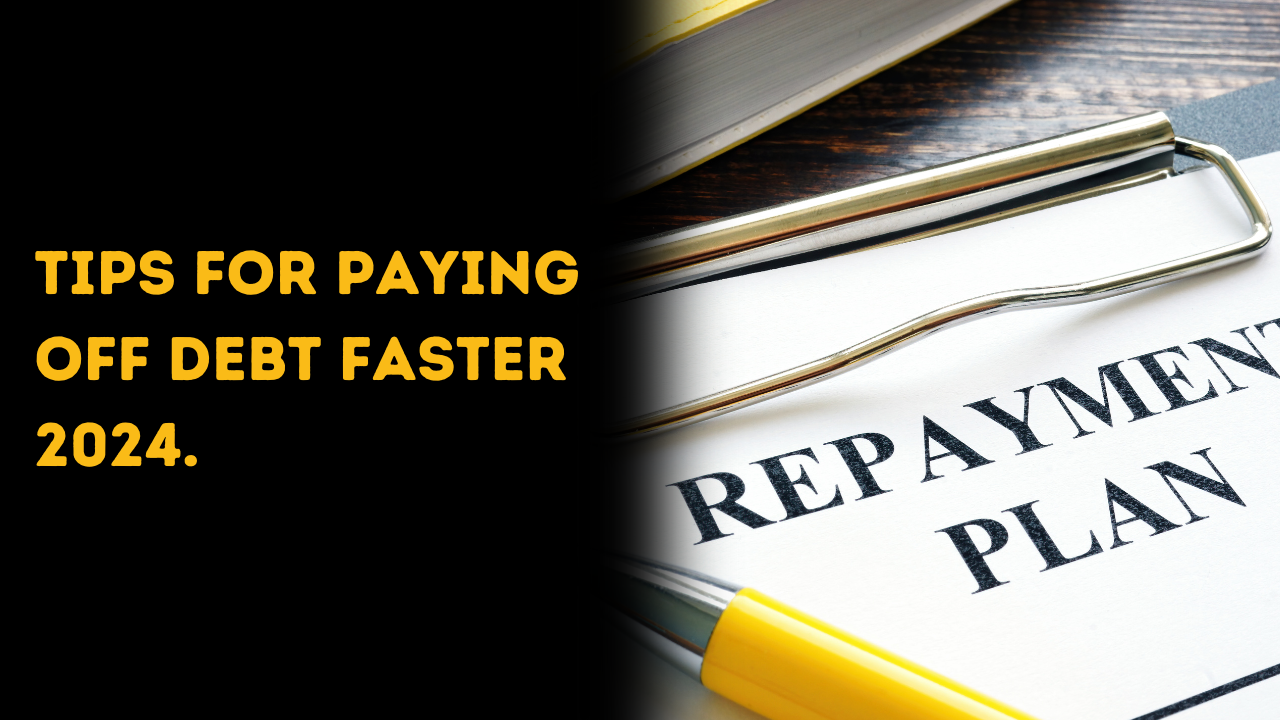Tips For Paying Off Debt Faster.
20 Jun 2024 4 mins Personal Finance

Although debt can be a big burden, you can pay it off more quickly and reclaim your financial independence if you use the appropriate tactics. As of 2024, a large number of people in India are struggling with debt of many kinds, including credit card debt, personal loans, and college loans. Here are some useful advice to get you started on the path to paying off your debts sooner.
1. Establish a spending plan
Making a thorough budget is the first step in debt repayment. To find out where your money is going, keep a record of your earnings and outlays. This can assist you in determining where you can make savings and increase the amount of money you put toward paying off debt.
2. Prioritize Your Debts
List all your debts and prioritize them. Focus on paying off high-interest debts first, such as credit card debt. This strategy, known as the avalanche method, reduces the amount of interest you pay over time. Alternatively, you can use the snowball method, which involves paying off the smallest debts first to build momentum.
3. Consolidate Your Debts
If you have multiple debts, consider consolidating them into a single loan with a lower interest rate. Many banks and financial institutions in India offer debt consolidation loans. This can simplify your payments and reduce the overall interest you pay.
4. Increase Your Income
Look for ways to increase your income to speed up debt repayment. You could take on a part-time job, freelance, or sell unused items. Any extra money you earn can be put towards paying off your debt faster.
5. Cut Down on Unnecessary Expenses
Evaluate your spending habits and cut down on unnecessary expenses. This might mean eating out less, cancelling unused subscriptions, or finding cheaper alternatives for some of your regular expenses. Redirect the money you save towards your debt.
6. Use Windfalls Wisely
If you receive any unexpected money, such as a bonus, tax refund, or gift, use it to pay down your debt. While it might be tempting to spend this money on something else, using it for debt repayment can make a significant difference in the long run.
7. Set Up Automatic Payments
Setting up automatic payments for your debts ensures that you never miss a payment. This can help you avoid late fees and reduce the risk of accruing additional interest. Many banks in India offer the option to set up automatic payments for loans and credit cards.
8. Negotiate Lower Interest Rates
Contact your lenders to negotiate lower interest rates on your loans and credit cards. Sometimes, lenders are willing to reduce interest rates if you have a good payment history. Lower interest rates can help you pay off your debt faster by reducing the overall amount you owe.
9. Seek Professional Advice
If you're struggling to manage your debt, consider seeking help from a financial advisor or a credit counseling service. They can provide personalized advice and help you develop a debt repayment plan that suits your situation.
Conclusion
Paying off debt faster requires discipline, planning, and sometimes, a bit of sacrifice. By creating a budget, prioritizing your debts, increasing your income, and cutting down on unnecessary expenses, you can make significant progress towards becoming debt-free. Remember, the sooner you pay off your debt, the sooner you can start building a stronger financial future.
Get a Personal Loan that fits your needs. Apply for loans from Rs 1000 to Rs 15 Lakhs with competitive rates.
Find the Perfect Credit Card for your spending habits. Explore top credit cards and maximize your rewards.
Author- Ayush Naik
Ayush Naik is an expert in personal finance with an MBA in Finance. With over five years of experience working alongside stock market traders, Ayush has a deep understanding of market dynamics and investment strategies. His practical insights and analytical skills have helped many individuals navigate the complexities of financial planning and investment. Ayush’s professional background and commitment to educating others make him a valuable contributor to our personal finance blog.